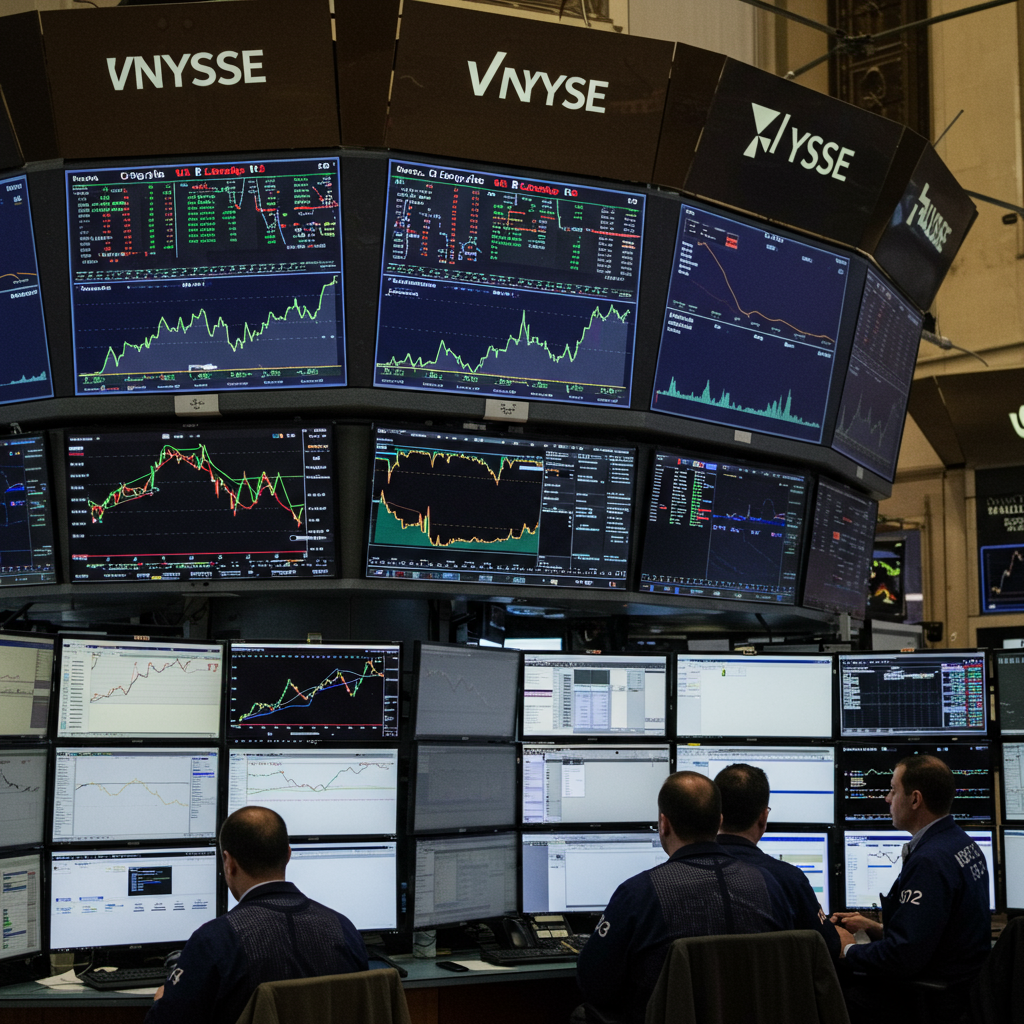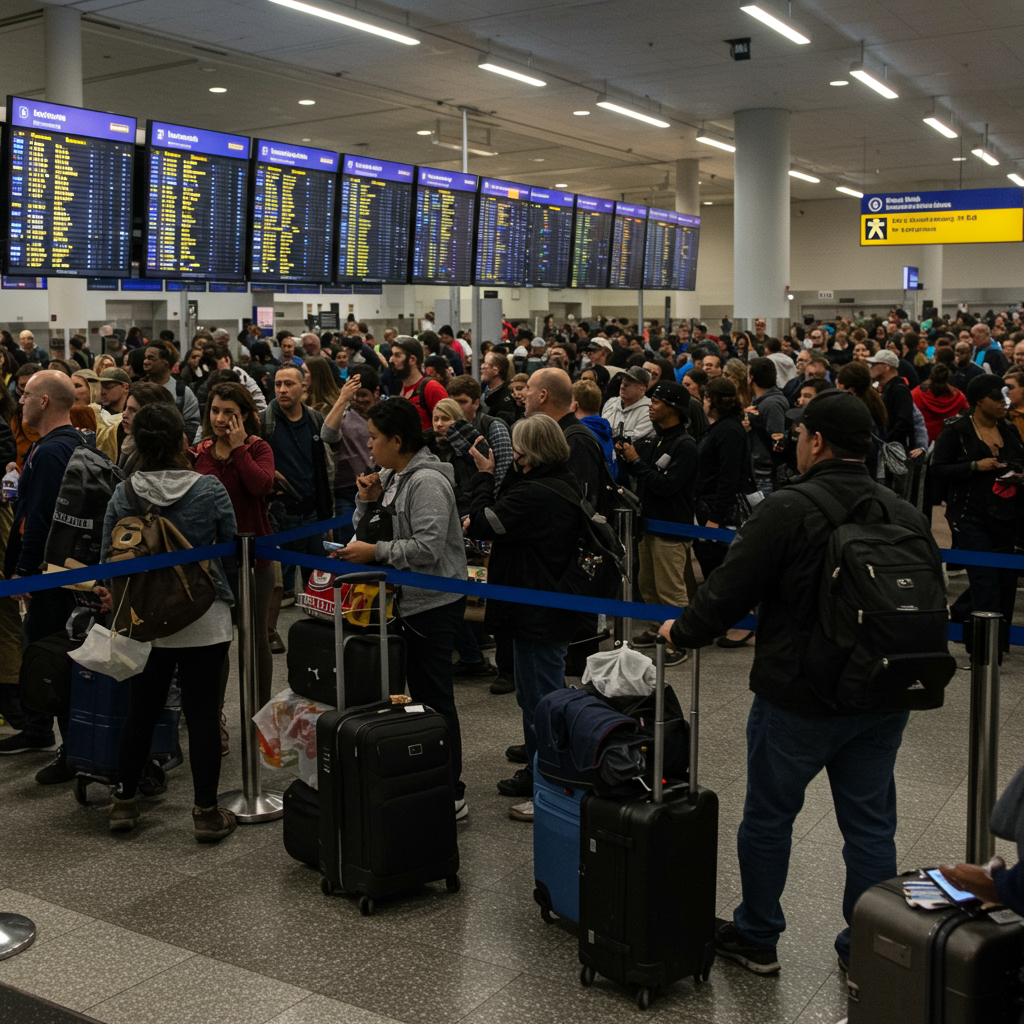Wall Street Rebounds as Fears Ease
Wall Street saw a significant rebound on Monday, with U.S. stocks climbing and oil prices retreating, as markets shook off the shock from the previous Friday’s events. The calm returned after Israel’s attacks on Iranian targets late last week had initially sparked fears of a wider conflict and disruptions to global oil supplies.
Major U.S. stock indexes posted solid gains, reclaiming most of the ground lost during Friday’s downturn. The S&P 500 rose 0.9%, the Dow Jones Industrial Average added 317 points (0.8%), and the Nasdaq composite gained 1.5%. This positive sentiment wasn’t confined to the U.S., as markets across Asia and Europe also saw broad advances.
Oil Prices Pull Back from Initial Surge
The easing of geopolitical fears was most immediately reflected in commodity markets. Despite ongoing exchanges between Israel and Iran and the lingering potential for a wider conflict to affect crude flow, particularly through the critical Strait of Hormuz, oil prices gave back a substantial portion of their recent jump.
Market participants seemed to take cues from past regional conflicts, where spikes in crude prices proved brief if fighting didn’t ultimately disrupt supply. Hopes that the current hostilities could remain contained contributed to oil prices falling back.
Benchmark U.S. oil (West Texas Intermediate) dropped 1.7% to settle near $71.77 per barrel. Brent crude, the international standard, fell 1.3% to roughly $73.23 per barrel. These declines followed gains of around 7% for both benchmarks on Friday immediately after the initial attacks.
In another signal of receding market anxiety, gold prices also eased. Often seen as a safe-haven asset during times of uncertainty, gold gave back some of its knee-jerk climb from Friday, with an ounce falling 1% to $3,417.30.
Adding to the sense of potential de-escalation, Iran’s foreign minister made comments interpreted as an overture for U.S. diplomatic involvement, suggesting a phone call from Washington to Israel’s leader “may pave the way for a return to diplomacy.”
Beyond Geopolitics: Tariffs and the Fed Loom
While the Middle East situation dominated the start of the trading week, Wall Street is simultaneously navigating other significant economic headwinds.
A key concern remains the potential impact of President Donald Trump’s tariffs. These taxes on imports continue to pose a threat by potentially slowing economic growth and fueling inflation, particularly if the U.S. doesn’t secure new trade deals. The shadow of these tariffs hung over the ongoing Group of Seven (G7) meeting in Canada, where the U.S. met with six other major global economies.
Looking ahead this week, attention will shift to the Federal Reserve’s upcoming meeting, with a decision on interest rates expected Wednesday. The near-unanimous consensus among traders and economists is that the Fed will opt to hold rates steady. This cautious approach follows a rate cut late last year, with the central bank waiting to better assess how Trump’s tariffs might affect the economy and inflation. Inflation has recently remained relatively tame and near the Fed’s 2% target.
More crucial for markets than the rate decision itself will likely be the Fed officials’ latest set of economic forecasts. Projections for future interest rate moves will be closely scrutinized, with some economists, including those at Bank of America, forecasting only one rate cut this year, followed by three more in 2026.
In the bond market, the yield on the 10-year Treasury note edged up slightly to 4.45% from 4.41% late Friday.
Stock Highlights:
Specific company news also drove notable stock movements:
Sage Therapeutics saw a significant jump of 35.4% after Supernus Pharmaceuticals announced a potential acquisition deal for the biopharmaceutical company valued at up to $795 million, or $12 per share, contingent on certain conditions.
U.S. Steel rose 5.1% following President Trump’s executive order paving the way for investment from Japan’s Nippon Steel. The deal’s terms reportedly grant Trump unique influence over U.S. Steel’s future operations.
- Conversely, defense contractors that benefited from Friday’s geopolitical tensions gave back some gains. Lockheed Martin fell 4%, and Northrop Grumman sank 3.7%.
- magnoliatribune.com
- www.djournal.com
Global Markets Follow Suit
Reflecting the broader positive mood, stock indexes generally rose across Europe and Asia. Hong Kong stocks climbed 0.7% and Shanghai gained 0.3% following data indicating stronger Chinese consumer spending in May, although factory activity and investment growth showed signs of slowing. South Korea’s Kospi saw a strong gain of 1.8%, and Japan’s Nikkei 225 rallied 1.3%, among the biggest advances globally.



